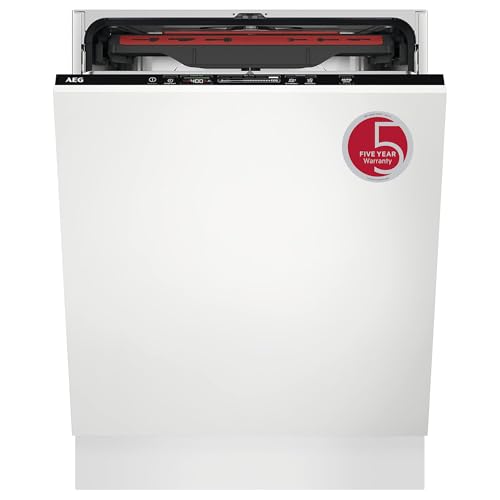




Keeping your refrigerator clean is essential for maintaining a healthy and odor-free environment in your kitchen. One often overlooked area that needs regular cleaning is the fridge drain. Over time, this drain can become clogged with food particles and other debris, leading to unpleasant smells and potential mold growth. Fortunately, cleaning the fridge drain is a simple task that can be done with a few household items and a little bit of time.
Step 1: First, locate the fridge drain. It is typically found at the back of the refrigerator, near the bottom on the inside. The drain is a small hole or opening where excess water from the defrosting process collects and drains away. You may need to remove the bottom shelf or drawer to access the drain.
Step 2: Once you have located the drain, use a mixture of warm water and mild dish soap to clean the area around the drain. Use a soft brush or toothbrush to scrub away any built-up debris and grime. Be sure to be gentle to avoid damaging the drain or any surrounding components.
Pro tip: If you have a strong odor coming from the drain, you can add a tablespoon of baking soda to the warm soapy water mixture to help neutralize the smell.
Step 3: After cleaning the area around the drain, it is time to clean the drain itself. You can use a small flexible brush or a pipe cleaner to gently clean out any clogs or blockages in the drain. Insert the brush or pipe cleaner into the drain and move it up and down to dislodge any debris. You can also use a mixture of equal parts vinegar and water to help dissolve any stubborn clogs.
Step 4: Once you have cleared the drain of any clogs, flush it with warm water to ensure it is completely clean. Use a funnel or turkey baster to pour water into the drain and allow it to flow through and out of the fridge. Repeat this step a few times to ensure all debris and cleaning solution are thoroughly rinsed away.
Step 5: Finally, wipe down the area around the drain and replace any shelves or drawers that were removed. To prevent future clogs and odors, make it a habit to regularly clean the fridge drain at least once every few months. Additionally, avoid placing food directly on the drain area to prevent the build-up of debris and potential clogs.
By following these simple steps, you can keep your fridge drain clean and your refrigerator smelling fresh. A clean fridge drain not only prevents odors but also helps your refrigerator function efficiently, ensuring your food stays safe and your kitchen stays hygienic.
Why Cleaning a Fridge Drain is Important
Keeping your fridge drain clean is essential for maintaining a fresh and odor-free refrigerator. Over time, debris, food particles, and other substances can accumulate in the drain, leading to unpleasant smells and potentially even mold growth. By regularly cleaning the fridge drain, you can prevent these issues and ensure that your refrigerator remains clean and hygienic.
1. Prevents Bad Odors
One of the main reasons to clean your fridge drain is to prevent bad odors from developing. When food particles and other debris get stuck in the drain, they can begin to decompose, producing a foul smell that can permeate throughout your refrigerator. By removing this buildup regularly, you can keep your fridge smelling fresh and clean.
2. Avoids Mold Growth
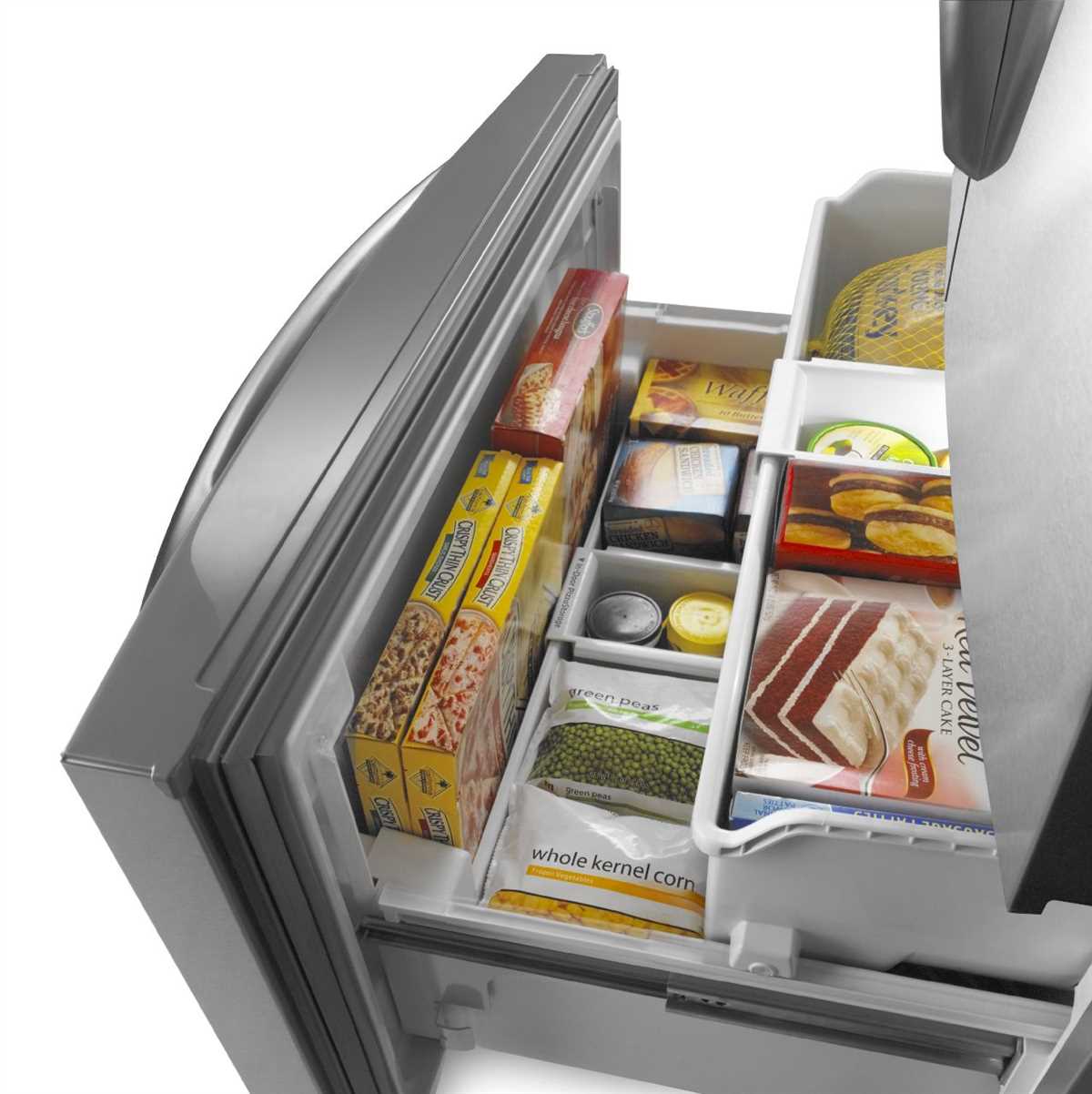
A dirty fridge drain provides a perfect breeding ground for mold and bacteria to grow. Mold can pose serious health risks, especially for individuals with allergies or respiratory conditions. By cleaning the drain regularly, you can eliminate the conditions that promote mold growth and reduce the risk of health issues.
3. Extends the Lifespan of Your Fridge
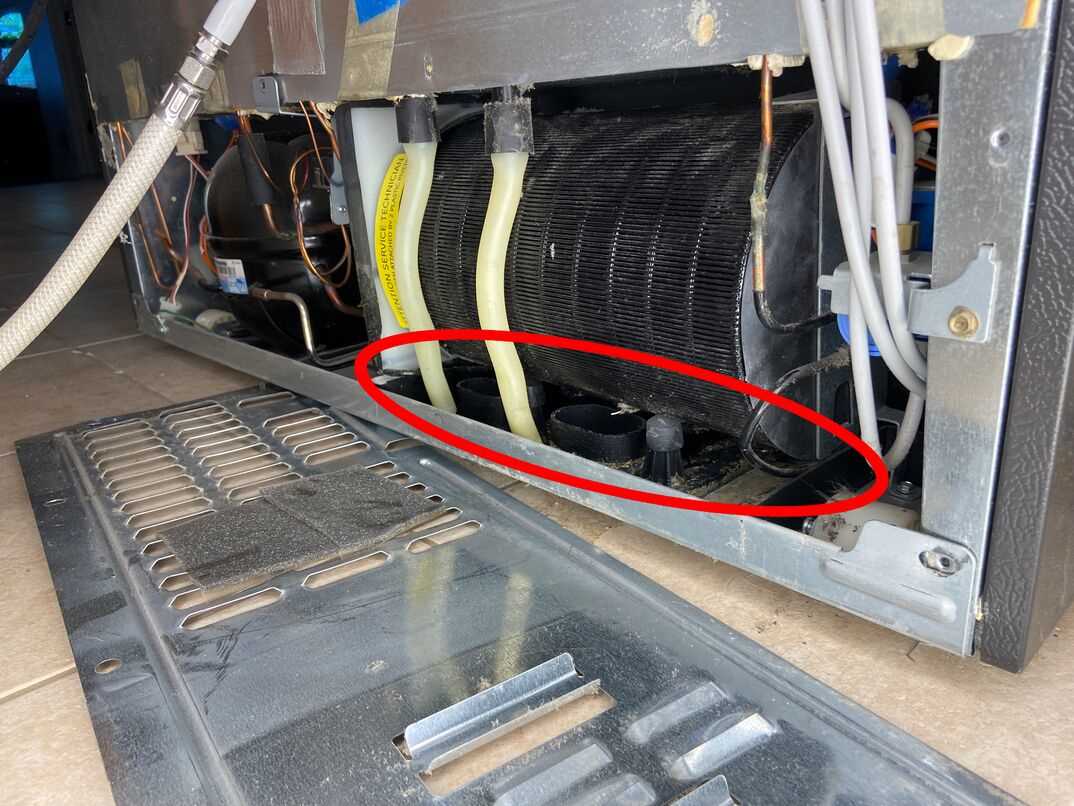
When the fridge drain is clogged with debris, it can lead to the improper functioning of the refrigerator. The drain may become blocked, causing water to back up and potentially damage the internal components of the appliance. By keeping the drain clean, you can help ensure that your fridge operates efficiently and extend its lifespan.
4. Improves Energy Efficiency
A clean fridge drain allows your refrigerator to run more efficiently, saving energy and reducing your electricity bills. When debris accumulates in the drain, it can impede the proper flow of air and make the fridge work harder to maintain the desired temperature. Regular cleaning of the drain helps to improve airflow and optimize the energy efficiency of your refrigerator.
5. Promotes Food Safety
A dirty fridge drain can contaminate the food stored in your refrigerator. Bacteria and other harmful microorganisms can thrive in the drain and transfer onto your food, posing a risk to your health. By keeping the drain clean, you can help ensure the safety of your stored food and reduce the chances of foodborne illnesses.
In conclusion, cleaning the fridge drain is crucial for maintaining a fresh and odor-free refrigerator, preventing mold growth, extending the lifespan of the appliance, improving energy efficiency, and promoting food safety. Regular cleaning of the drain is a simple yet effective way to keep your refrigerator in top shape and ensure the well-being of your household.
Step-by-Step Guide to Cleaning a Fridge Drain
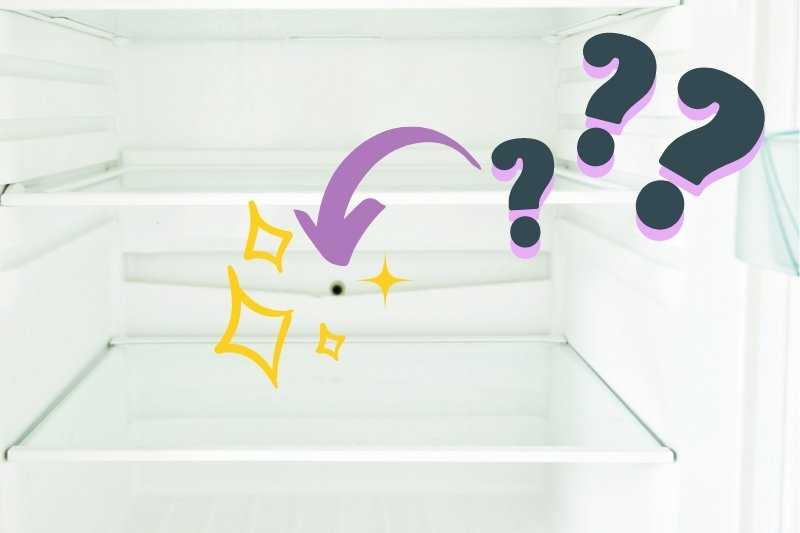
1. Gather Your Supplies
Before you start cleaning your fridge drain, make sure you have all the necessary supplies on hand. Here is a list of what you will need:
- Warm water
- Mild dish soap
- Vinegar
- Small brush or pipe cleaner
- Bucket or bowl
- Towel or sponge
2. Turn Off and Empty the Fridge
Before you begin cleaning, turn off your fridge and unplug it from the power source. Empty the contents of your fridge and store them in a cooler or another refrigerator to keep them cold.
3. Locate and Remove the Drain
Locate the drain inside your fridge. It is usually located at the bottom of the back wall or near the vegetable crisper drawers. Remove the drain cover or plug if it is present.
4. Clean the Drain with Warm Water and Dish Soap
Fill a bucket or bowl with warm water and add a few drops of mild dish soap. Dip a brush or pipe cleaner into the soapy water and scrub the inside of the drain to remove any dirt, debris, or mold buildup. Rinse the drain thoroughly with clean water.
5. Remove Persistent Clogs with Vinegar
If you notice any persistent clogs or unpleasant smells in the drain, you can use vinegar to help dissolve them. Pour a small amount of vinegar into the drain and let it sit for about 15 minutes. Then, flush the drain with warm water to remove the vinegar and any loosened debris.
6. Dry and Reassemble the Drain
Use a towel or sponge to dry the drain and surrounding area. Reassemble the drain cover or plug if you removed it earlier.
7. Clean the Exterior of Your Fridge
After cleaning the drain, don’t forget to clean the exterior of your fridge as well. Wipe down the doors, handles, and surfaces with a mixture of warm water and mild dish soap. Rinse with clean water and dry with a towel.
8. Plug In and Restock Your Fridge
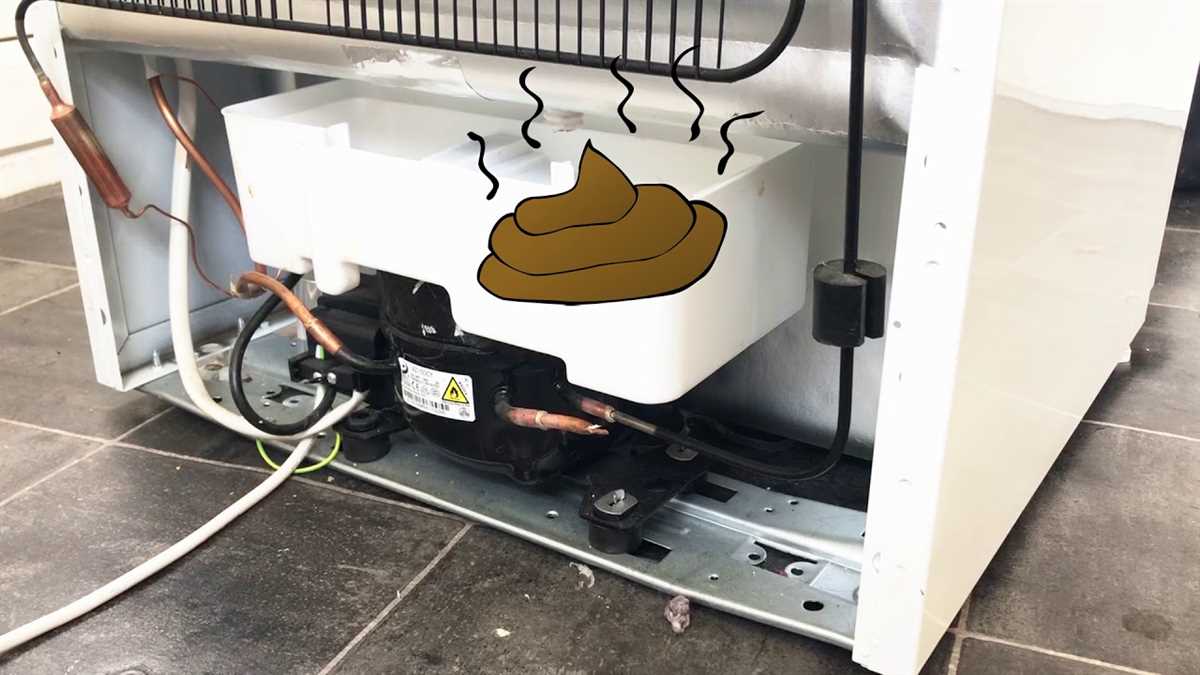
Once your fridge is clean and dry, plug it back in and allow it to cool down before restocking it with your food items.
By following these simple steps, you can keep your fridge drain clean and prevent unpleasant odors from forming.
Essential Tools and Materials for Cleaning a Fridge Drain
When it comes to cleaning a fridge drain, having the right tools and materials on hand can make the process much easier and more efficient. Here are some essential items you will need:
- Baking soda: Baking soda is a natural deodorizer and can help eliminate any unpleasant odours coming from your refrigerator drain.
- Vinegar: Vinegar is another powerful cleaning agent that can help remove built-up grime and bacteria from the drain.
- Warm water: Warm water is essential for creating a cleaning solution and rinsing the drain.
- A cleaning brush or toothbrush: A small brush, such as a cleaning brush or toothbrush, can be used to scrub the drain and remove any debris.
- Rubber gloves: Rubber gloves will protect your hands from any cleaning solutions or dirt that may come into contact with your skin.
- A plastic funnel or turkey baster: A plastic funnel or turkey baster can be used to pour the cleaning solution into the drain.
- A bucket or basin: Having a bucket or basin nearby will allow you to catch any excess water or debris that may come out of the drain during the cleaning process.
- A towel or sponge: A towel or sponge can be used to wipe down the inside of the refrigerator and clean up any spills or messes.
Having these tools and materials at your disposal will help ensure that you can effectively clean your fridge drain and keep it smelling fresh and clean.
Tips to Prevent Smells in Your Refrigerator
Having a smelly refrigerator can be unpleasant and can affect the taste and quality of your food. To prevent smells in your refrigerator, follow these tips:
1. Keep the refrigerator clean
Regularly clean your refrigerator to remove any spilled food or liquids that can cause odors. Use a mild detergent and warm water to wipe down the shelves, drawers, and interior surfaces. Pay special attention to the corners and crevices where food particles can accumulate.
2. Store food properly
Proper food storage is essential in preventing odors in your refrigerator. Make sure to store raw meats in sealed containers or on lower shelves to prevent cross-contamination. Keep produce in crisper drawers or in sealed bags to maintain freshness. Use airtight containers or wrap leftovers tightly with plastic wrap or aluminum foil to prevent odors from spreading.
3. Use odor absorbers
Place odor absorbers like baking soda or activated charcoal in your refrigerator to absorb any odors. These natural ingredients help neutralize smells and keep your refrigerator smelling fresh. Replace the odor absorbers every 1-3 months or as needed.
4. Avoid strong-smelling foods
Avoid storing strong-smelling foods like onions, garlic, or pungent cheeses uncovered in your refrigerator. These foods can easily transfer their odors to other items. Keep them in airtight containers or tightly sealed bags to prevent the smells from spreading.
5. Clean spills promptly
If you accidentally spill something in your refrigerator, clean it up immediately. Leaving spills unattended can lead to the growth of bacteria and mold, which can produce unpleasant odors. Use a mild detergent and warm water to clean up the spill and prevent odors from forming.
6. Regularly replace air filters
If your refrigerator has an air filter, make sure to replace it regularly, as it can trap odors and affect the air quality inside the fridge. Follow the manufacturer’s instructions for replacing the filter or consult the user manual for guidance.
7. Keep the refrigerator well-ventilated
Proper ventilation is essential in preventing odors in your refrigerator. Make sure the air vents inside the fridge are not blocked by food items. Allow some space between items for air to circulate freely, and avoid overpacking the fridge, as this can restrict airflow and lead to odors.
8. Check the temperature
Ensure that your refrigerator is set to the proper temperature. Most fridges should be set between 35-38°F (1-3°C). Higher temperatures can promote the growth of bacteria and lead to odors. Use a refrigerator thermometer to accurately monitor the temperature and adjust it if necessary.
By following these tips, you can maintain a fresh and odor-free refrigerator, ensuring that your food stays fresh and delicious.
Professional Maintenance vs DIY Cleaning: Pros and Cons
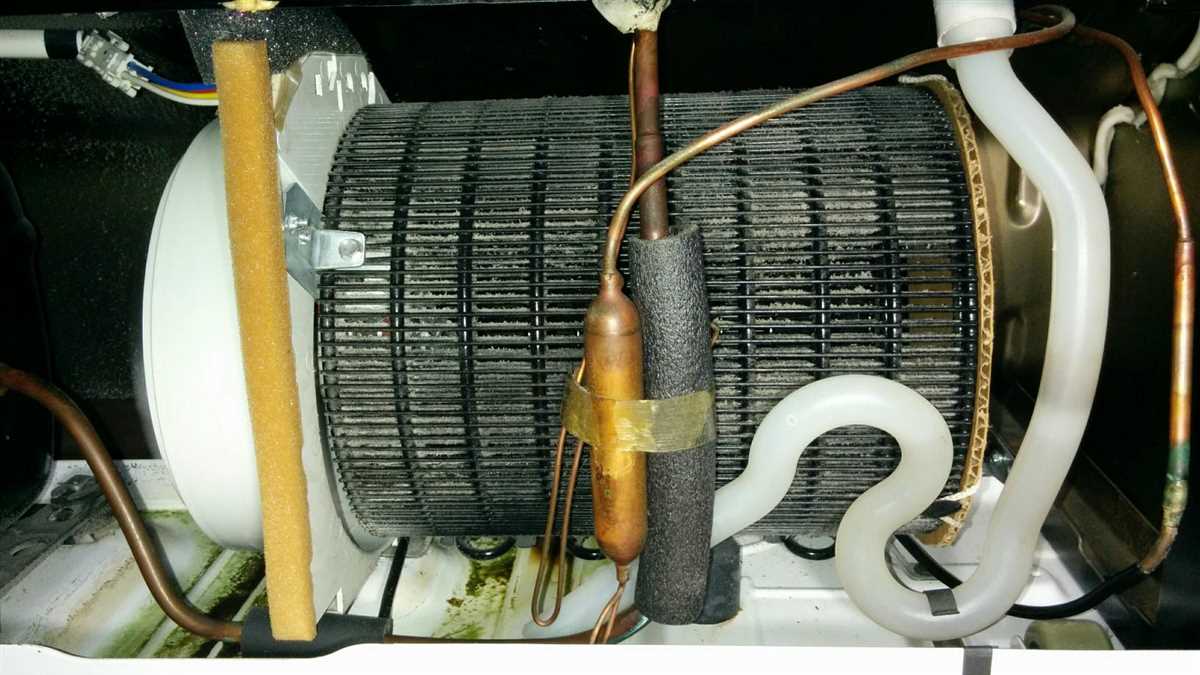
Professional Maintenance
Professional maintenance for cleaning a fridge drain involves hiring a professional cleaning service or a refrigerator technician to handle the task. Here are some pros and cons of opting for professional maintenance:
- Expertise: Professionals have the knowledge and experience to effectively clean and maintain a fridge drain. They can identify and address any potential issues or problems that may arise during the cleaning process.
- Time-saving: Hiring professionals allows you to save time and effort as they take care of the entire cleaning process. You can focus on other tasks or activities while they handle the maintenance.
- Thorough cleaning: Professionals use specialized tools and equipment to ensure a deep and thorough cleaning of the fridge drain. They can remove any stubborn debris or build-up that may not be easily accessible.
- Cost: Professional maintenance may be more expensive compared to DIY cleaning methods. The cost will depend on the service provider and the complexity of the cleaning required.
DIY Cleaning
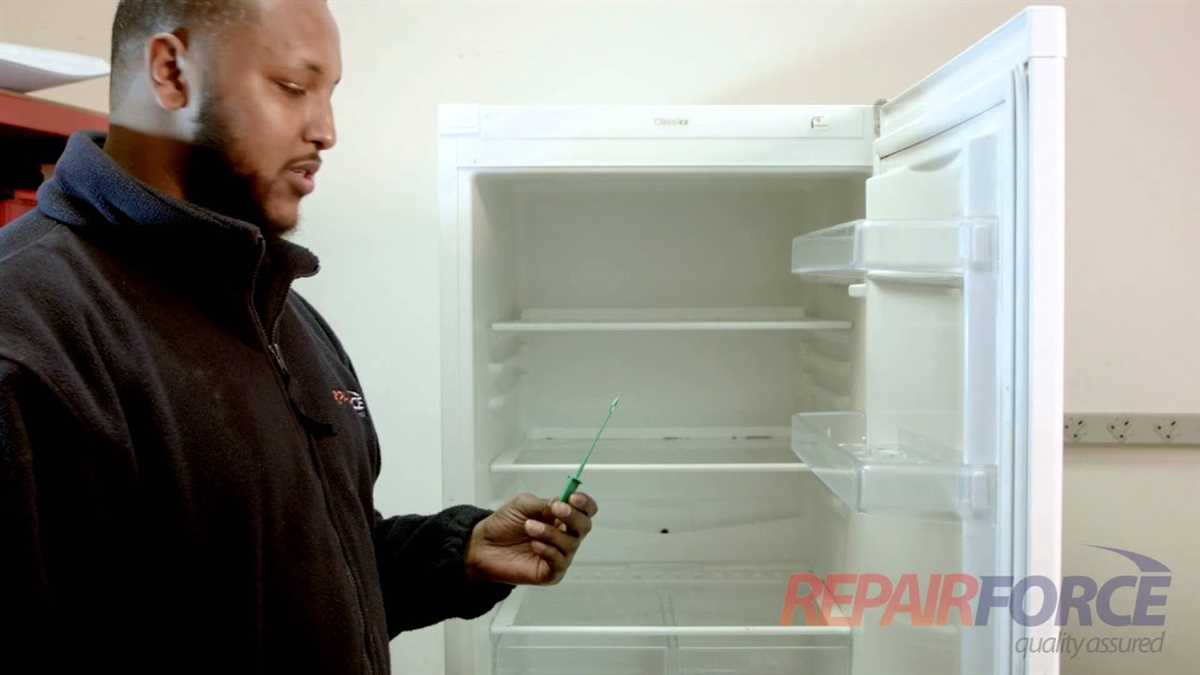
DIY cleaning for a fridge drain involves cleaning and maintaining the drain by yourself using household items and cleaning techniques. Here are some pros and cons of opting for DIY cleaning:
- Cost-saving: DIY cleaning is a cost-effective option as it eliminates the need to hire a professional service. You can save money by using readily available household items for cleaning.
- Control: With DIY cleaning, you have full control over the cleaning process. You can choose the cleaning products you prefer and adjust the cleaning method to your specific needs.
- Convenience: DIY cleaning allows you to clean the fridge drain at your own convenience, without having to schedule or wait for a professional service. You can perform the cleaning whenever it is convenient for you.
- Effort and time: DIY cleaning requires more effort and time compared to professional maintenance. You will need to research and gather the necessary cleaning materials and invest time in performing the cleaning process.
- Effectiveness: While DIY cleaning can be effective, it may not always provide the same level of deep cleaning as professional maintenance. Some stubborn debris or build-up may be challenging to remove without proper tools and equipment.
| Factors | Professional Maintenance | DIY Cleaning |
|---|---|---|
| Expertise | Yes | No (unless you have relevant knowledge/expertise) |
| Time-saving | Yes | No |
| Thorough cleaning | Yes | May vary |
| Cost | Expensive | Cost-effective |
FAQ
Why is my refrigerator smelling bad?
Your refrigerator may be smelling bad due to a clogged fridge drain. When the drain gets clogged, water accumulates, leading to the growth of bacteria and mold, which causes the foul smell.
How often should I clean my fridge drain?
It is recommended to clean your fridge drain every three to six months. Regular cleaning will prevent water accumulation and the growth of odor-causing bacteria.
What materials do I need to clean the fridge drain?
To clean the fridge drain, you will need a mixture of warm water and vinegar, a small brush or pipe cleaner, and a towel or sponge for wiping.
Can I use bleach to clean the fridge drain?
No, it is not recommended to use bleach to clean the fridge drain. Bleach can be corrosive to the drain pipes and may cause damage. It is safer to use a mixture of warm water and vinegar.
How can I prevent the fridge drain from getting clogged?
To prevent the fridge drain from getting clogged, make sure to wipe up any spills or leaks in the refrigerator immediately. Regularly check and clean the drain pan under the fridge and remove any debris that may accumulate near the drain hole.



